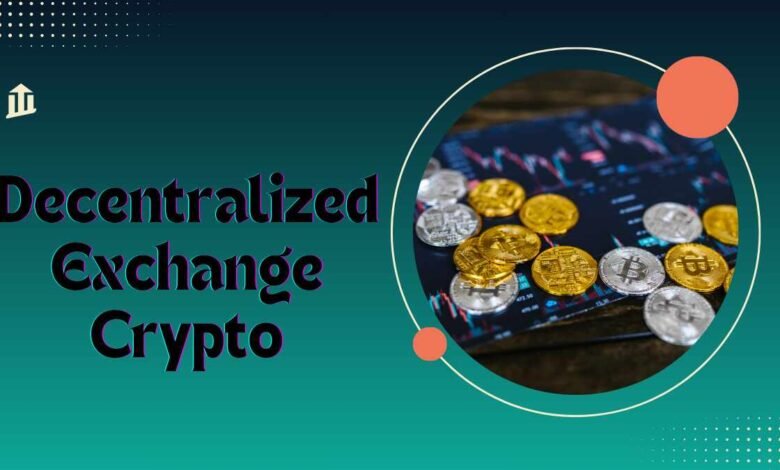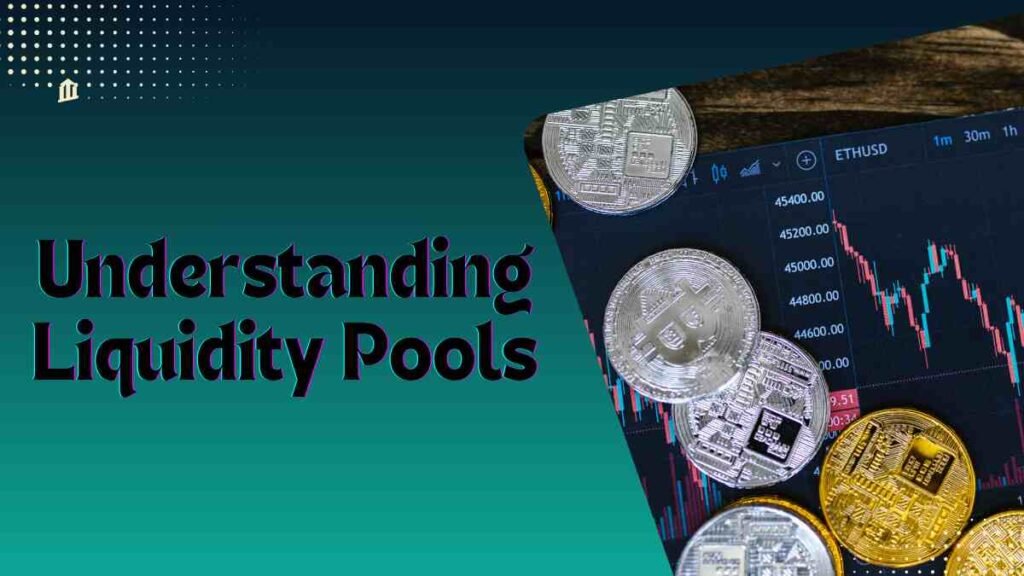
Decentralized exchange crypto decentralized exchanges (DEX) are emerging as a powerful force. These platforms have become a cornerstone of the digital finance revolution, enabling traders to buy, sell, and swap cryptocurrencies without relying on intermediaries. But what exactly makes decentralized exchanges so crucial in the crypto ecosystem?
What Are DEX Trading Platforms?
DEX trading platforms are decentralized applications (dApps) that allow users to trade cryptocurrencies directly with one another. Unlike traditional, centralized exchanges, these platforms operate on blockchain technology, ensuring that no single entity has control over the transactions.
Differentiate DEX from Centralized Exchanges
No Middlemen
DEX platforms remove the need for intermediaries, which reduces costs and speeds up transactions.
Increased Security
Since funds are not held in a central location, there is a lower risk of large-scale hacking.
User Control: Decentralized Exchange Crypto
Traders have complete control over their assets and private keys.
How DEX Trading Platforms Work
Decentralized exchanges function through the use of smart contracts and blockchain technology. These platforms facilitate peer-to-peer trading, meaning users can trade directly with each other without an intermediary.
Blockchain Technology and its Role in DEX
The underlying blockchain ensures transparency and security by recording each transaction in a public ledger that cannot be altered or manipulated. This decentralized approach provides a secure environment for trading digital assets.
Understanding Liquidity Pools

Liquidity pools are a vital component of DEX platforms. They consist of a collection of funds locked in a smart contract, providing the necessary liquidity to facilitate trades.
Must Visit: Twist Tale
Importance of Liquidity in Trading
Without adequate liquidity, traders may face issues like slippage, where the price of a cryptocurrency changes significantly between the order placement and execution. Liquidity pools help prevent this, making trading smoother and more efficient.
Role of Automated Market Makers
Automated Market Makers (AMMs) are algorithms that enable trading in liquidity pools by setting the price of assets. AMMs are crucial for maintaining liquidity and providing fair market pricing.
Benefits of AMMs for Traders
Continuous Trading
AMMs allow for 24/7 trading without the need for human intermediaries.
Fair Pricing: Decentralized Exchange Crypto
They use mathematical formulas to determine asset prices, reducing the chances of price manipulation.
Crypto Swap Services
Crypto swap services allow users to exchange one cryptocurrency for another instantly on DEX platforms. This feature has made decentralized exchanges more user-friendly and accessible.
Using Crypto Swap Services in DEX.
Blockchain Trading Solutions and DEX
Blockchain technology forms the backbone of DEX platforms, ensuring secure and transparent trading solutions. It provides the infrastructure necessary for the seamless operation of decentralized exchanges.
Security and Transparency in Blockchain Trading Solutions
The decentralized nature of blockchain ensures that all transactions are immutable and transparent, significantly reducing the risk of fraud or manipulation.
Benefits of Using Decentralized Exchange Crypto
Decentralized exchanges offer several advantages over their centralized counterparts, making them increasingly popular among crypto enthusiasts.
Enhanced Security and Privacy
With no central point of failure, DEX platforms are less vulnerable to hacking attacks. Users also enjoy higher privacy as they do not need to share sensitive information.
Reduced Transaction Fees
Without intermediaries, transaction fees on DEX platforms are often lower, making it a cost-effective solution for traders.
Global Accessibility and Freedom of Trade
DEX platforms are open to anyone with an internet connection, enabling global participation in the crypto market without geographical restrictions.
Challenges Faced by DEX Platforms
Despite their benefits, decentralized exchanges also face some challenges that need to be addressed for broader adoption.
Liquidity Issues
Low liquidity can lead to higher slippage and less favorable trading conditions, especially for less popular tokens.
Complexity for New Users: Decentralized Exchange Crypto
The learning curve can be steep for beginners unfamiliar with blockchain technology and decentralized finance.
Potential Security Risks

While DEX platforms are generally secure, vulnerabilities in smart contracts can sometimes be exploited by hackers.
The Future of Decentralized Exchanges
As blockchain technology advances, decentralized exchanges are expected to become even more robust and user-friendly, driving the growth of the DeFi sector.
Key Between DEX and Centralized Exchanges
Control
DEX platforms give users full control over their assets, while centralized exchanges hold user funds.
Security: Decentralized Exchange Crypto
Decentralized exchanges tend to be more secure due to the lack of a central point of failure.
Popular DEX Trading Platforms
Some of the leading decentralized exchanges in the market include Uniswap, Sushi Swap, and Pancake Swap. These platforms have set the standard for decentralized trading with their innovative features and high liquidity. DEX tokens represent the native cryptocurrencies of decentralized exchanges, often used for governance and staking within the platform. They offer significant growth potential as the demand for decentralized finance continues to rise.
How DEXs Work
At the heart of decentralized exchanges are peer-to-peer (P2P) trading and smart contracts. Instead of using an order book model like centralized exchanges, many DEXs use automated market makers (AMMs), which rely on smart contracts to facilitate trades. These smart contracts execute predefined rules for buying and selling assets, making transactions faster, more secure, and fully decentralized.
Conclusion
Decentralized exchanges are redefining the landscape of cryptocurrency trading by offering a more secure, transparent, and efficient alternative to traditional exchanges. As the world of digital finance continues to grow, DEX platforms will play an increasingly significant role in the future of crypto. As the cryptocurrency landscape evolves, DEXs are likely to play an even larger role in the future of digital trading.
FAQs
What is the main difference between DEX and centralized exchanges?
DEX platforms allow peer-to-peer trading without intermediaries, while centralized exchanges require a third-party service to facilitate trades.
How do liquidity pools work in a decentralized exchange?
Liquidity pools are collections of funds locked in smart contracts that provide liquidity for trading pairs, enabling smoother transactions.
Are DEX platforms safe to use?
Yes, DEX platforms are generally secure, but users should still exercise caution and use well-known platforms to avoid scams.
What role do Automated Market Makers (AMMs) play in DEX?
AMMs set asset prices in liquidity pools, ensuring continuous trading without the need for traditional order books.
Can beginners start trading on DEX platforms?
While DEX platforms can be complex, many offer user-friendly interfaces and resources to help beginners get started.
Read More : Best Day Trading Stocks




